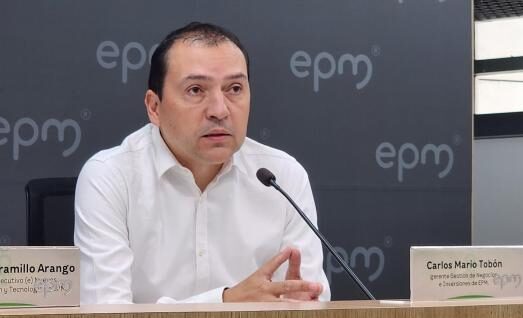In the bustling city of Medellín, where the mountains cradle the hopes of millions, a quiet storm brews. Esteban Manco, a lawyer with a heart for the people, has taken up the torch to fight against what he sees as a deep wound to public trust. With the stroke of a pen, a 2024 agreement was passed that would allow the powerful EPM (Empresas Públicas de Medellín) to sell its shares in UNE EPM Telecomunicaciones and Inversiones Telco S.A.S., but this decision, Manco believes, was made in the dark shadows of oversight.
With unwavering determination, Manco has filed a popular action before an administrative court in Medellín, seeking to undo the sale. He argues not for the sake of paperwork or profits, but for something much more sacred: the public’s right to know. “It is not enough to see numbers in books,” he says, his voice steady and sure. “The people deserve transparency. The councilors of Medellín deserve to see the market valuation of these shares, not just the cold figures written on a ledger.”
A Void in the Process
At the heart of Manco’s fight lies a void, an emptiness where there should have been clarity. Orlando de Jesús Uribe Villa, the Secretary of Finance, had 60 days to present a market valuation of the UNE shares. But time slipped away, and the council made their decision without the vital knowledge of what these assets were truly worth. Instead, they were left with a number pulled from EPM’s accounting books: COP 1.6 billion, a figure that held the weight of a promise, but none of the truth.
Yet when Manco’s team reached out for answers, Carlos Mario Tobón Osorio, EPM’s Manager of Business and Investments, could only say that the valuation process had “barely begun.” No final price had been set, only the figure registered in their books. And so, the Law 226 of 1995, which upholds the moral duty to protect public assets and transparency, was left in the dust of urgency. Manco argues that this law was not just overlooked; it was outright violated.
The Heart of Medellín’s Public Trust
The people of Medellín have a deep connection to EPM. It’s more than just a company; it’s a pillar of the city, a symbol of public power working for public good. But in recent months, cracks have begun to show. The council’s August 21st decision to approve the sale sparked resignations from the board and opened old wounds between the business community and the city’s administration.
In that moment, John Maya Salazar, EPM’s general manager, stood firm in his belief that the sale would bring positive change. “With the resources from the sale,” he said, “we can finally bring to life initiatives that will lift our communities, improving the quality of life for the people who live and breathe in these lands.” But Manco, and those who share his view, can’t help but wonder: At what cost?
A Future Still Uncertain
As the court now holds the fate of the UNE share sale in its hands, Manco and his supporters continue their fight for justice. They seek not just the suspension of the agreement, but a future where every decision about public assets is made with full transparency and careful consideration.
For now, EPM awaits the outcome of a new valuation, a process led by independent advisors and investment banks who will determine the true worth of these shares. But the weight of Manco’s claim—that the people deserve to know, to see, and to understand—hangs over every step.
In this tale, where the powerful face off against the persistent, one truth rises above all: Medellín’s public trust is not for sale. It’s a force that must be safeguarded, with each decision made in the light of day, for the people, by the people.


